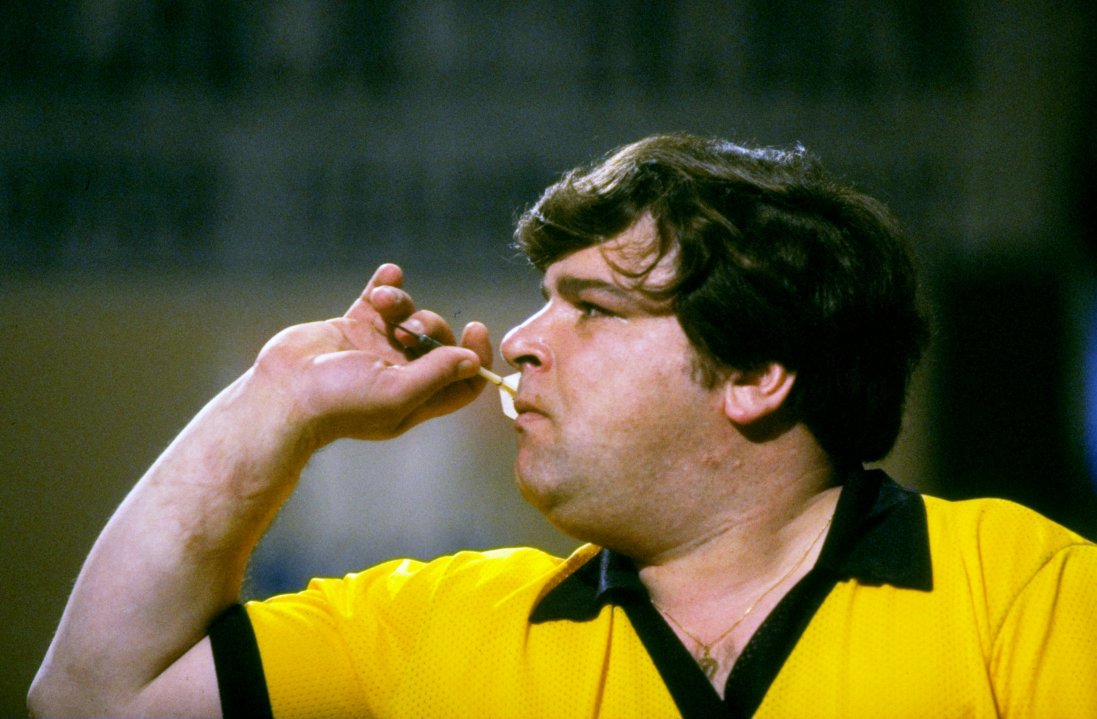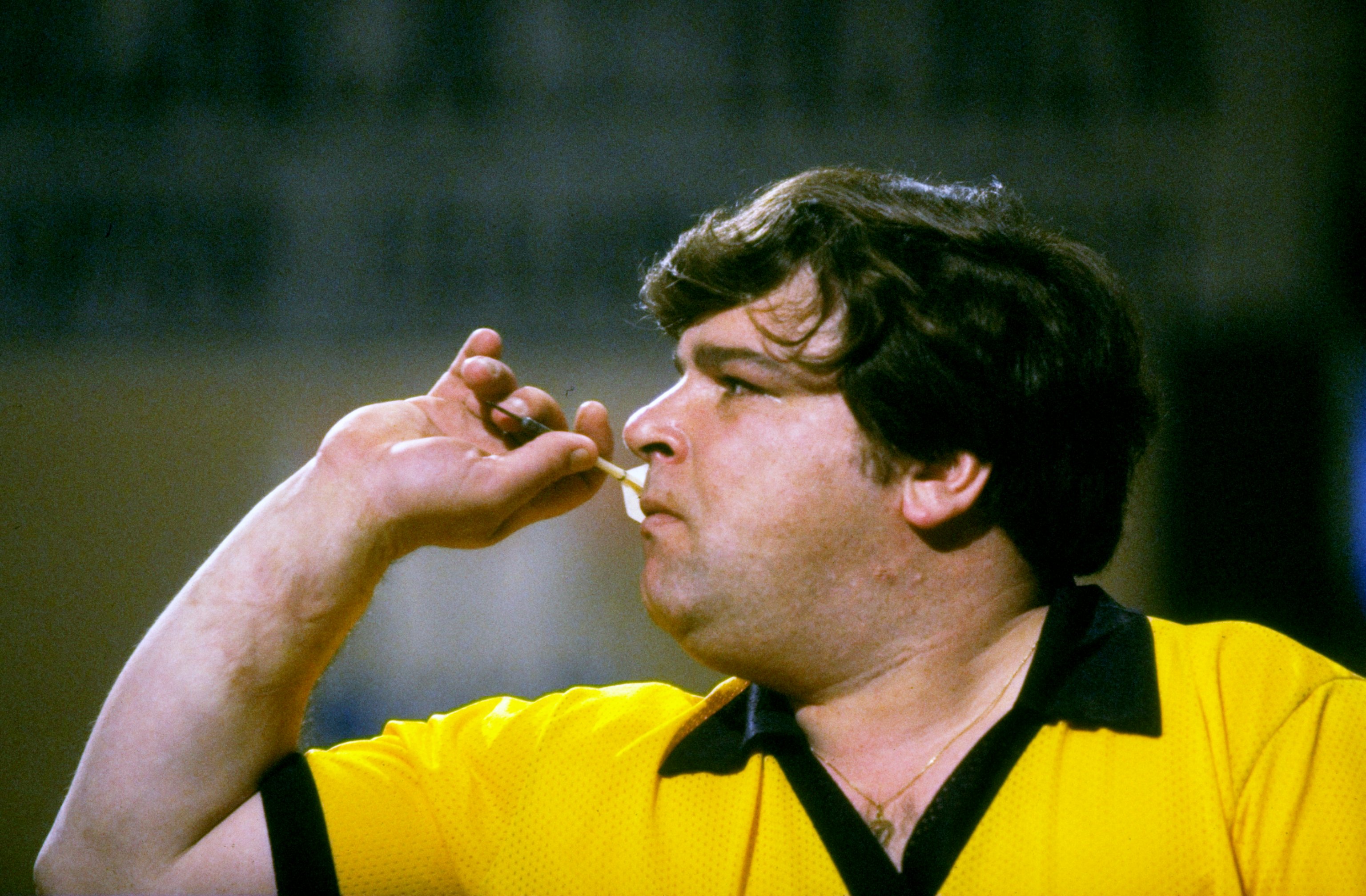Jocky Wilson, who died on Saturday night aged 62, was a very Scottish sporting hero: short, fat and toothless he was touched by equal measures of brilliance and self-destruction. Darts is glitzy now but back in its 1980s pomp it needed no rock music or scantily-clad dancing girls to lend an air of semi-ironic gladiatorial mock-heroism to the action. Especially during the World Champioships, three men made darts compulsive television: Eric Bristow, John Lowe and Jocky Wilson. The supporting cast – featuring “Big Cliff” Lazarenko, Leighton Rees. Keith Deller and Bob Anderson (“The Limestone Cowboy”) were grand but never commanded the stage like darts’ original Big Three.
Bristow may have been the greatest player and Lowe the most consistent but Wilson came closer to earning folk-hero status than any darter in history. Bristow’s brilliance could be taken for granted (at least until dartitis – a condition comparable to golf’s yips – got the better of him); so too Lowe’s emotion-free consistency (reflected in the nickname Old Stoneface; oddly suggestive of an American Civil War general). But Wilson’s consistency was his inconsistency. That seems an odd verdict to deliver upon a two-time world champion who also lifted the British title on four occasions. Nevertheless, watching Jocky was a gruelling business during which success could never be assumed and dreadful failure was always a possibility. The near-misses were a large part of the Wilson legend, flattering the Scottish enthusiasm for running glory close.
Wilson could lurch from unbeatable to abject in seconds. Perhaps his greatest match was the 1989 world championship final. Playing Bristow, Jocky raced to a 5-0 lead and was within a set of a stunning victory. Then it began to fall apart. Bristow won the next four sets and seemed likely to overhaul a deficit then unprecedented in championship history. We feared the worst; Jocky’s luck, or skill, had run out. Mercifully and magnificently the suspicion Wilson would falter once again proved unworthy. We should have had more faith. Jocky rallied to take the tenth set and confirm an epic 6-4 victory.
As was the case with Jim Baxter, another Fifer swaddled with genius, one remembers the good times with pleasure but is left to think they could have been more numerous, and even grander, than they were. There was often a hint of desperation amidst the class, too. Wilson had a habit of snatching at his third dart, putting too much “shoulder” into it, in the hope it might atone for his first two arrows’ misadventures. Often this worked; just as often it did not. Purity of technique or form was not a great part of the Wilson armoury.
He played in streaks, meaning he was vulnerable to decent and worthy plodders. (World Championship encounters with Dave Whitcombe were, as I recall, an especially vexing business.) There was a sense in which Jocky revelled in being an underdog and this, like so much else he did, helped make him an improbable hero in his native land. So too did his effortless capacity for self-destruction.
Country songs could have been written about him: I Washed My Teeth Away (With Irn Bru) or Tonight the Lager Let My Arrows Down. This Kirkcaldy-gargoyle was a working-class champion whose appeal transcended boundaries of class, geography or diet. If this seems a large claim to make for a man famous for being blessed with a gift for throwing miniature arrows at small targets eight feet away then all I say is you weren’t there or do not remember the improbable drama of it all.
He needed the booze, however. It made and ruined him in equal part. Without it he might – at least back then – have never made it; without it he might, had he made it, lasted longer. He was, beneath it all, a shy man. The final years were sad: Jocky retreated to his home town where he became a recluse, spurning press attention and only leaving the house to visit the doctor. It was a poor end though not one untouched by a certain nobility. In one of his final interviews he insisted “I don’t want anyone feeling sorry for me. There’s only one person to blame for the situation I’m in, and that’s me.” As another folk-hero sang: Where you been is good and gone; all you keep is the getting there. True. And so, as Jocky Wilson might have nodded, is this: To live is to fly; low and high. So shake the dust off of your wings. And the sleep out of your eyes; Shake the dust off of your wings. And the tears out of your eyes.
Thanks for the memories, John Thomas Wilson. They are braw and so were you.








Comments